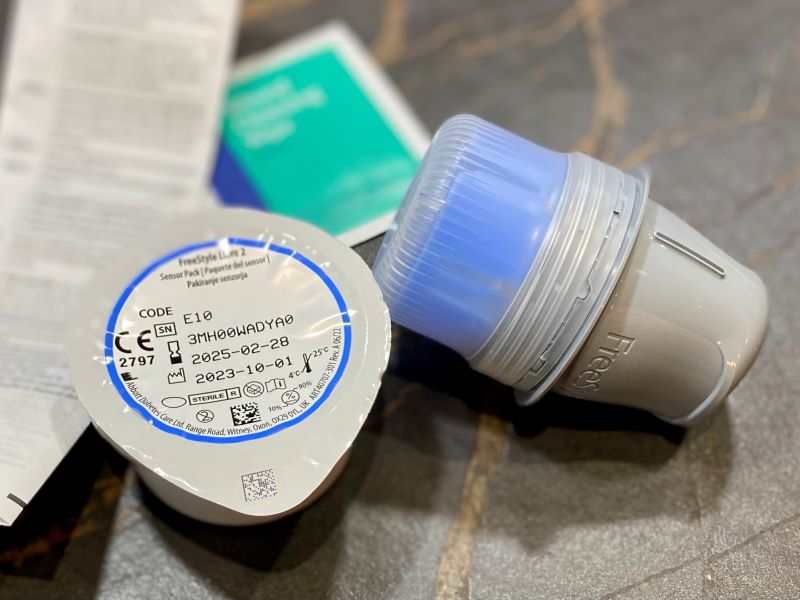“Crash dieting” , relying on sweet snacks for energy and leaving long gaps between meals or “back-end loading” calories in the evening are some common causes of disruption to blood sugar levels.
Starve/binge cycles or eating sugary foods causes a surge in blood glucose and stimulates an outpouring of insulin. Insulin promotes the conversion of glucose to glycogen and increases the uptake of this glycogen by our muscles and liver, in turn lowering blood sugar; it can do this so efficiently that blood sugar levels can quickly drop too low again, triggering a cycle of “peaks and troughs”. Signs of low blood sugar include a thumping head, exhaustion and irritability although it’s easy to put these down to tiredness. Similarly high blood sugar signs, such as insatiable thirst, more frequent need to urinate and a dry mouth are often confused with dehydration.
Insulin Resistance & *Metabolic Syndrome
Left unmanaged, blood sugar instability can lead to chronically elevated levels of circulating insulin and, over time, the liver and muscles become resistant to the effects of insulin. Some level of insulin resistance is something I regularly see in clinic; it is a step in the direction of type 2 diabetes so it is always a treatment priority.
*Metabolic syndrome is a collection of health risk factors that include central adiposity, insulin resistance, hypertension and high cholesterol. This cluster of symptoms is linked to an increased risk of developing type 2 diabetes and cardiovascular disease.
Physiological Stress
Chronic blood sugar instability causes a physical stress response independent of the stresses you may experience day-to-day. For optimum performance and brain function, blood sugar needs to remain stable; a drop in blood sugar will trigger an outpouring of stress hormones as the body believes it is in danger. Eating a heavy meal late in the evening can cause a drop in blood sugar during the night; your heart rate rises and cortisol mobilises sugar stored in the liver to restore levels of circulating glucose, leaving you hot and restless. Most of this released glucose is not needed whilst you sleep, so it’s converted to fat and dumped, typically around your middle as fat– a distribution pattern known as central adiposity.
Physiological stress can be compounded by the emotional pressures of work, relationships, grief and anger – the longer this continues it can bring about adaptive responses affecting the immune system, thyroid, sex hormones, digestion and weight/body composition. We are well designed for coping with short-term stress but chronic stress brings some unhelpful physiological adaptions and, without intervention, can lead to complete “burn out”.
Nutrient Deficiencies
Erratic eating can also lead to long-term nutrient deficiencies. Fuelling up on carb-dense foods may meet calorie needs but leave you lacking vital nutrients. Poor muscle recovery, muscle weakness and injuries are all signs that you are getting insufficient protein. A diet lacking essential fats can lead to dry skin, low mood, anxiety and joint pain. Signs of vitamin and mineral deficiencies are wide-ranging and include lowered immunity, frequent muscle cramps, poor co-ordination and slow wound healing. And, a lack of overall calories will cause your body to break-down muscle tissue for fuel – aargh! So, whilst beer and pizza may seem like the perfect way to relax after a busy week, try to use your “down time” to restock nutrients and make every meal count! Plus, alcohol causes further blood sugar destabilisation and nutrient depletion as well as contributing to inflammation, sleep disruption and cognitive impairment. So reducing your alcohol intake or ditching alcohol all together can bring rapid improvements to blood sugar stability.
Dietary Strategies
Avoid sugary foods and limit high glycaemic index (GI) foods
Moderate your fruit intake – berry fruits are lower in sugar
Include protein, complex carbohydrates and healthy fats with every meal
Eat plenty of fresh/frozen vegetables
Eat 2-3 portions of oily fish each week e.g. salmon, mackerel, sardines, cod liver
Increase plant-based healthy fats e.g. avocado, seeds & nuts, olive oil and nut butters
Increase intake of first class protein (preferably organic) e.g. eggs, chicken, turkey, venison
Incorporate more plant-based proteins e.g. chickpeas, lentils, quinoa, nuts & seeds
Lifestyle Strategies
Eat regularly so you don’t become ravenous before your next meal
Avoid eating heavy meals late in the evening
Limit caffeine, especially after mid-afternoon
Prioritise sleep whenever possible!
Reduce or cut out alcohol







